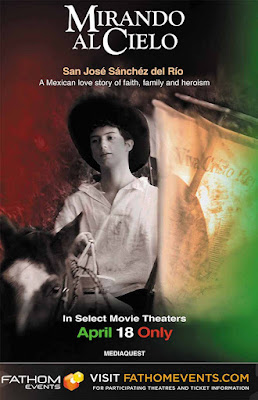For millions of families, reading A Christmas Carol is a holiday tradition. For Charles Dickens’ family, it was reading The Life of Our Lord, which he also wrote (obviously based on Biblical sources). However, the rest of the world would not be able to read it until 1934, after the death of his four children. It was a major literary event at the time, but the novella has sadly fallen out of fashion. Yet, the story is timeless and Dickens remains perennially popular. Animator Seong-ho Jang adapts Dickens’ adapted story and depicts its first telling in The King of Kings, released by Angel Studios, which opens this Friday in theaters.
If you do not know the basic events of the life of Christ by now, either your Sunday School teacher should be ashamed, or you are just a heathen. Dickens and Jang give us all the highlights: the manger, the fish and loaves, the moneychangers, and indeed the Last Supper (which is currently having its movie moment). However, it is all seen through the eyes of Dickens, his son Walter, and their fat cat, Willa.
Initially, the naughty Walter disrupted his father’s staged reading of A Christmas Carol with his King Arthur make-believe games. However, at the behest of his eternally patient wife Catherine, Dickens tells him the story of a far greater king, who eventually inspired the legend of King Arthur—even though he was not really a king in the traditional sense.
Some of the business with Walter and Willa gets a little too silly, but the episodes of Jesus’s life are handled quite nicely. Jang and English-language co-writer Rob Edwards (who co-wrote Disney’s Treasure Planet and The Princess and the Frog) fully explore the drama of each memorable story, but always in a respectful way. The film is undeniably reverent, but it never feels stilted or sermon-like. Arguably, Jang’s film is more successful than its 1961 namesake at realizing Biblical stories as big-screen entertainment.
Unfortunately, the character design is a little clunky. Apparently, people had honking big noses back during the days of antiquity. However, there are several visually arresting sequences that appropriately invoke awe and “mystery,” as the term is understood in a Biblical context. Indeed, these include every big crucial scene, such as the crucifixion.
The all-star voice cast is also quite a surprise, starting with Kenneth Branagh, who probably covers the greatest range, from comedy as Dickens, the exasperated father, to hushed devotion, as Dickens, the faithful Christian. Uma Thurman also brings warmth to the somewhat slap-sticky prelude as kind-hearted Catherine.
Without question, the voice of Jesus represented a tricky bit of casting, but Oscar Isaac turned out to be a wise choice. He definitely sounds like an “important voice,” but he is not instantly recognizable. Likewise, Forest Whitaker has the right modestly devout tone for Peter. Sir Ben Kingsley and Pierce Brosnan lend their commanding vocal talents as High Priest Caiaphas and Pontius Pilate, respectively, while prolific voice-over artist Fred Tatasciore (whose credits include The Day the Earth Blew Up and JLA Adventures: Trapped in Time) can be heard as Pharisee Eleazar.








